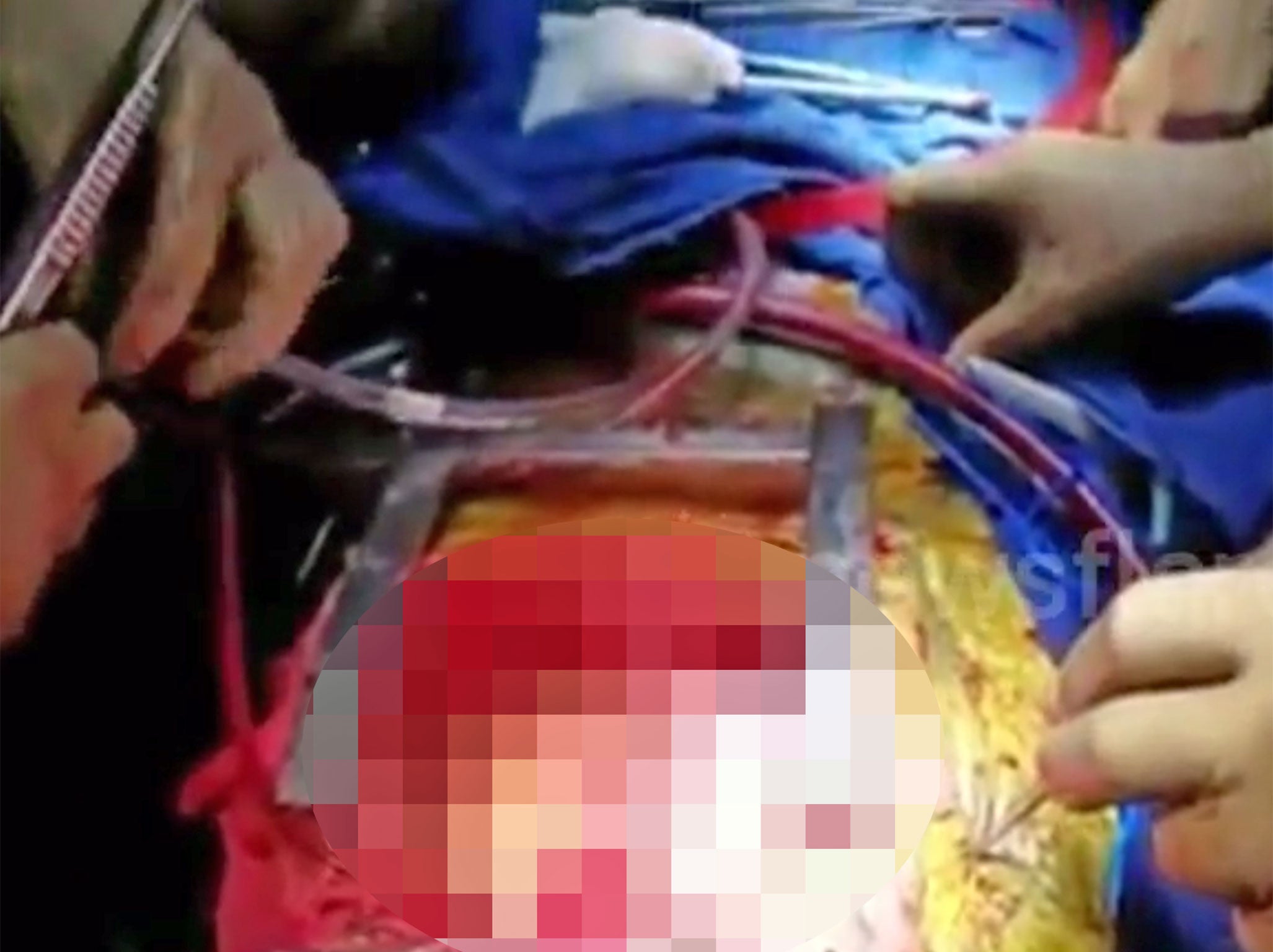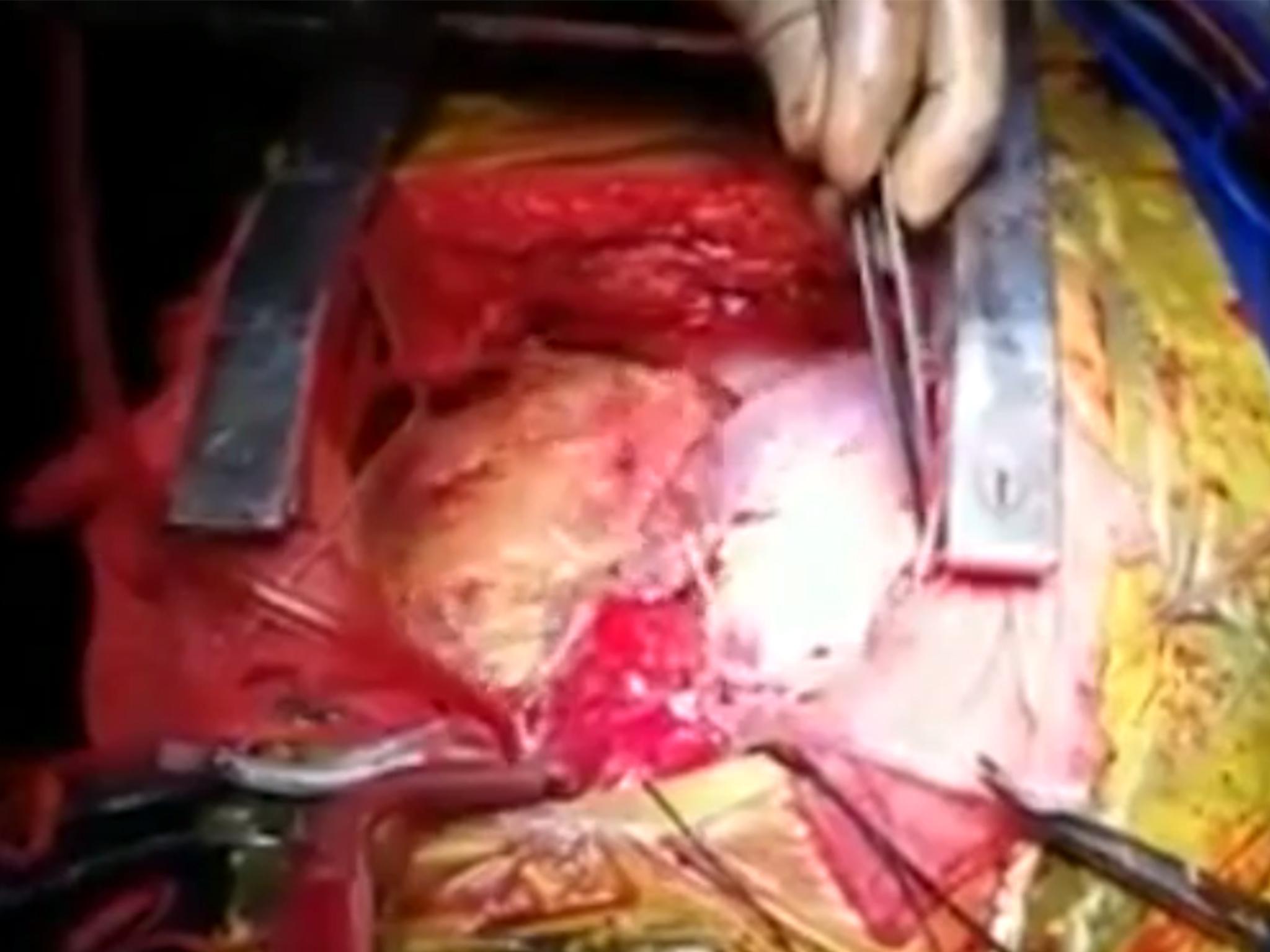Man now has two beating hearts after successful 'piggy-back' transplant operation
Patient now has two pulses and a complex electrocardiogram pattern

Your support helps us to tell the story
From reproductive rights to climate change to Big Tech, The Independent is on the ground when the story is developing. Whether it's investigating the financials of Elon Musk's pro-Trump PAC or producing our latest documentary, 'The A Word', which shines a light on the American women fighting for reproductive rights, we know how important it is to parse out the facts from the messaging.
At such a critical moment in US history, we need reporters on the ground. Your donation allows us to keep sending journalists to speak to both sides of the story.
The Independent is trusted by Americans across the entire political spectrum. And unlike many other quality news outlets, we choose not to lock Americans out of our reporting and analysis with paywalls. We believe quality journalism should be available to everyone, paid for by those who can afford it.
Your support makes all the difference.A man was left with two beating hearts after surgeons performed a rare “piggyback” operation in a last-ditch attempt to save his life.
The 56 year-old Indian patient was meant to have a standard transplant operation but the doctors quickly realised the donor organ from a brain-dead teenager was too small.
Cardiothoracic surgeon A Gopala Krishna Gokhale turned to “Plan B” and connected the healthy heart to the old failing organ during a seven-hour operation at Apollo Hospital in Hyderabad last week.
His normal second heart, which is fist-sized, now sits between the right lung and the original heart, described as “the size of a small football”.
“Two hearts in the patient complement each other to facilitate circulation, but beat at different rates,” Dr Gokhale told The Hindu newspaper.
“It is once-in-a-lifetime procedure a doctor performs. The surgery – known as a heterotopic or piggyback heart transplant – is rare and worldwide only about 150 such procedures have ever been reported.”
The patient’s blood pressure returned to near-normal levels after the operation – but he now has two pulses and a complex electrocardiogram pattern.

Piggyback heart transplants were pioneered by Christiaan Barnard in South Africa in the 1970s and the average survival for the procedure is ten years.
In the UK, Hannah Clark spent more than ten years with a second heart after undergoing the operation as a two-year-old baby.
Her donor heart was removed in 2006 when her original organ returned to full strength.
Perhaps most famously, Doctor Who has two hearts – described as a "binary vascular system".
Join our commenting forum
Join thought-provoking conversations, follow other Independent readers and see their replies
Comments